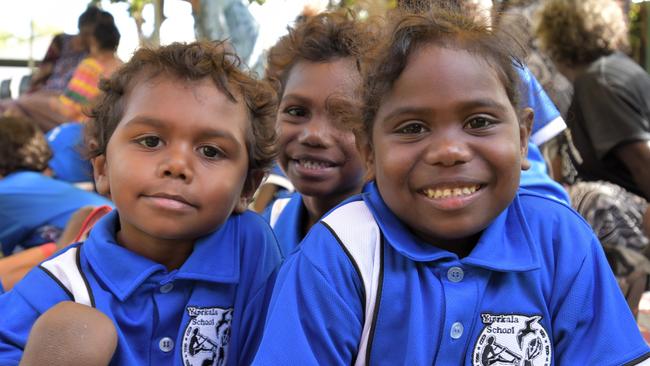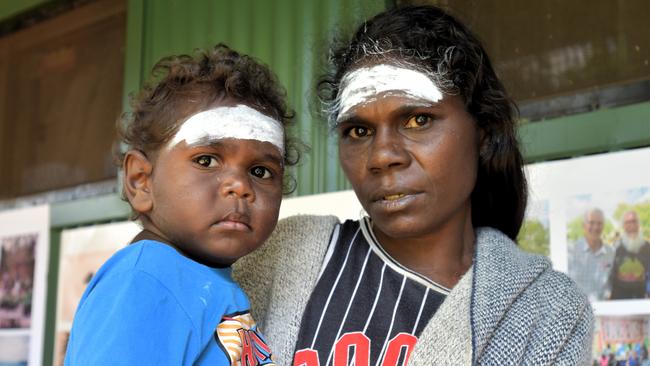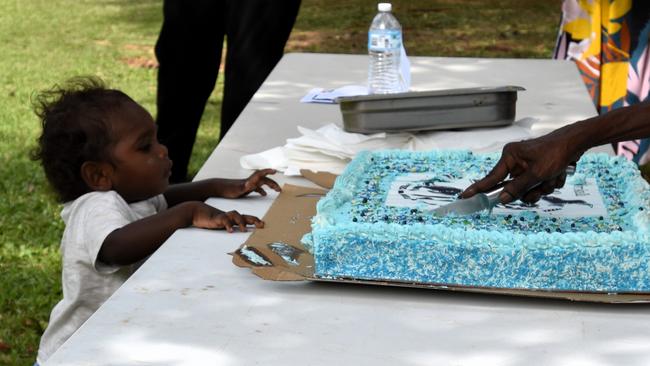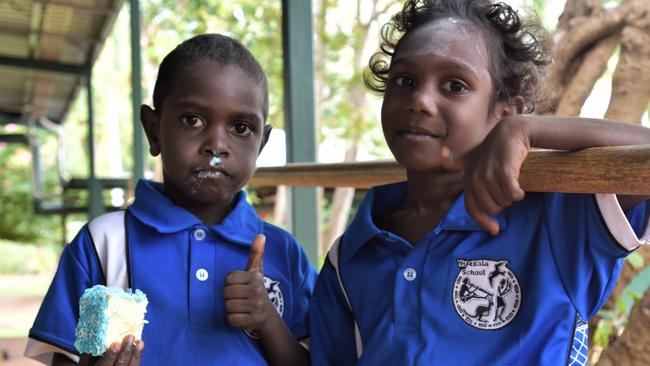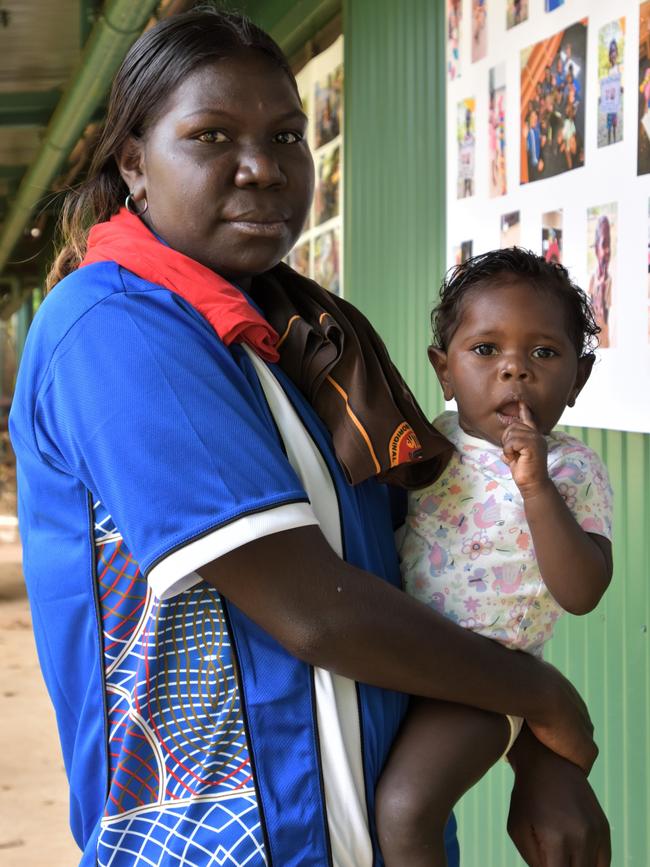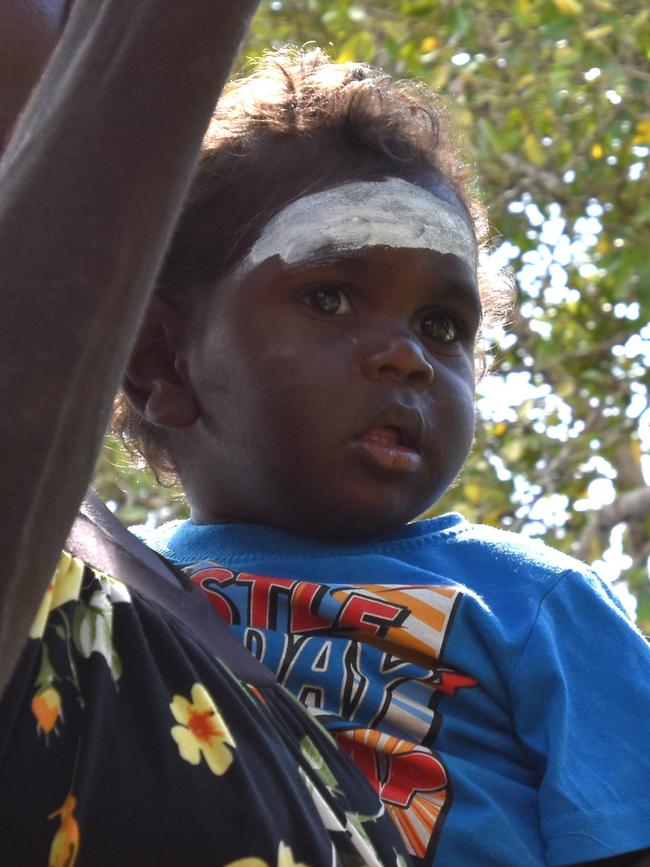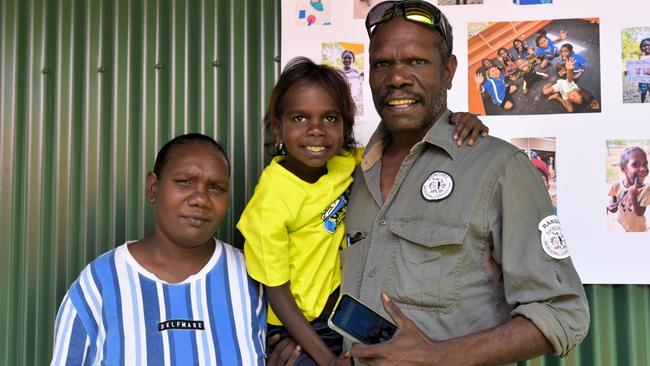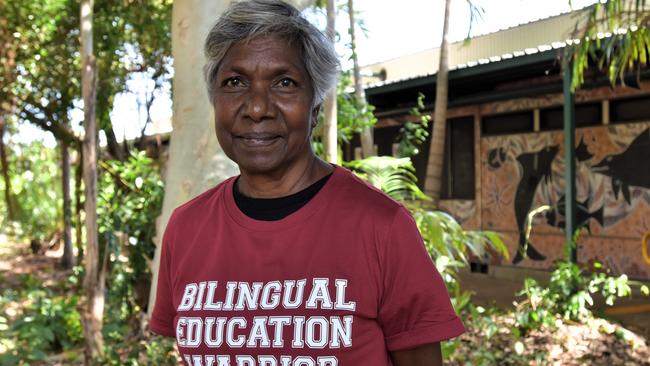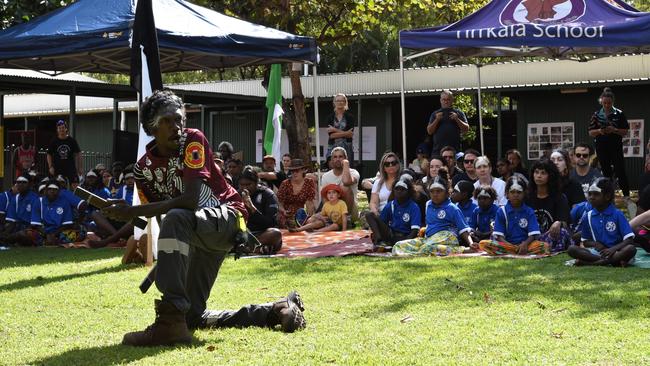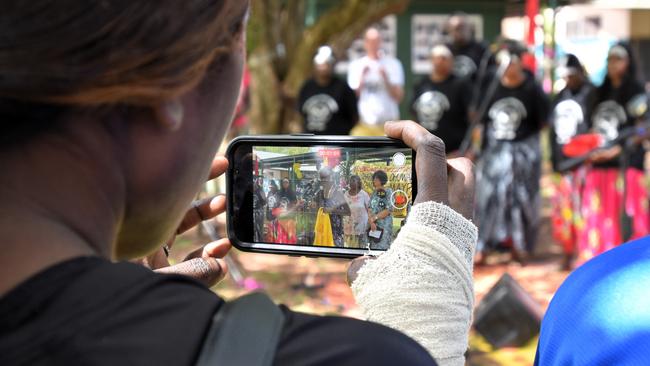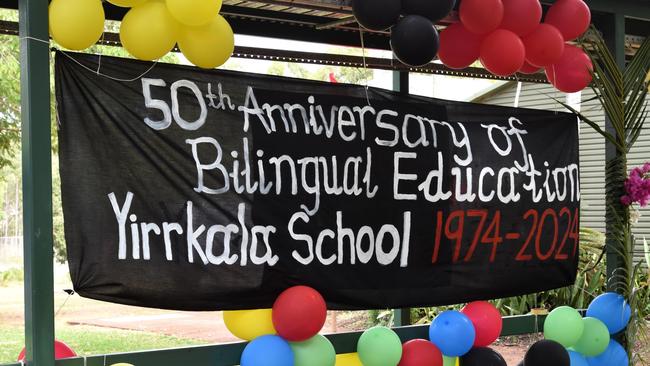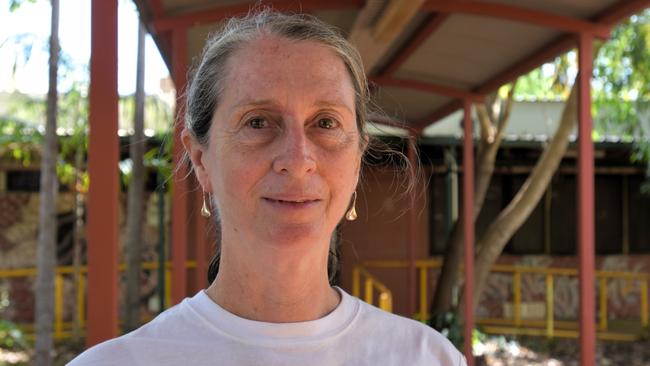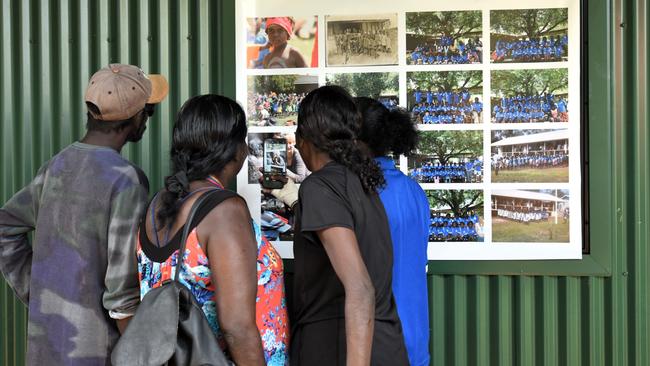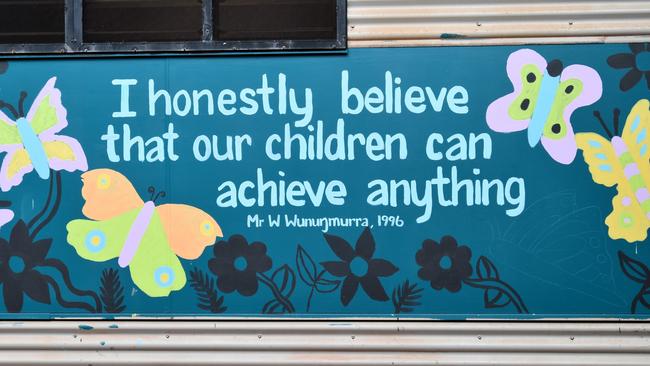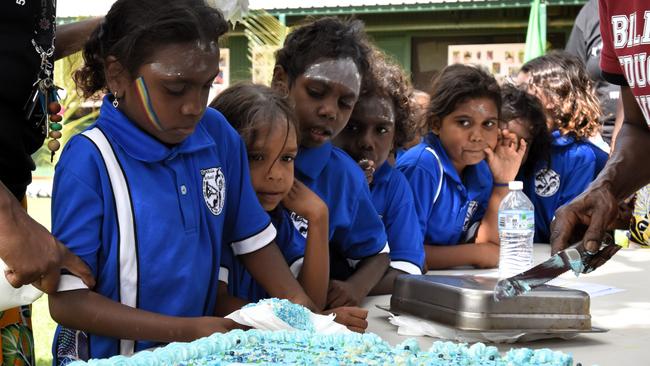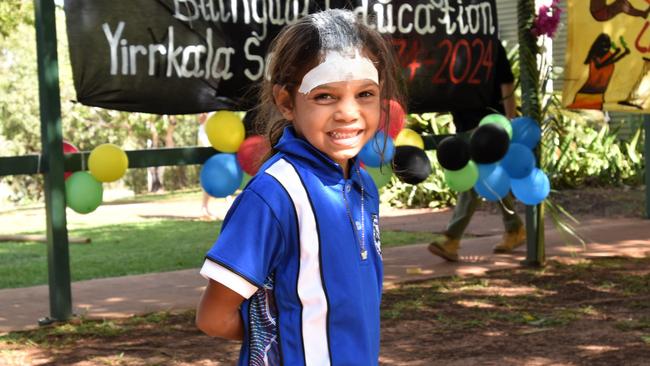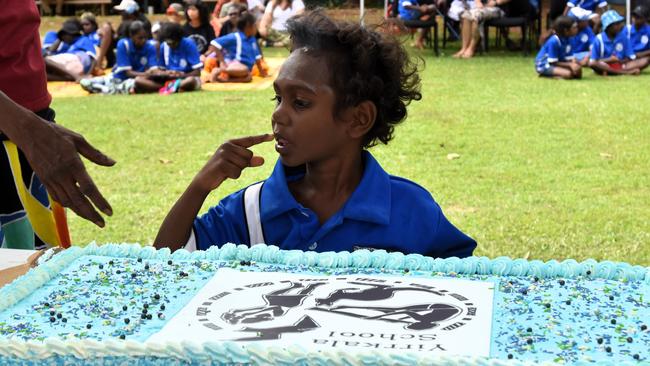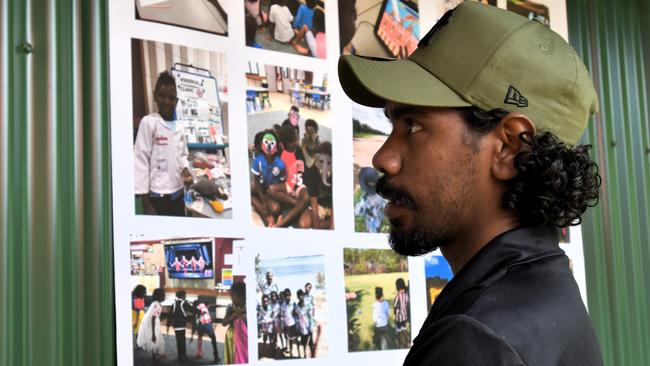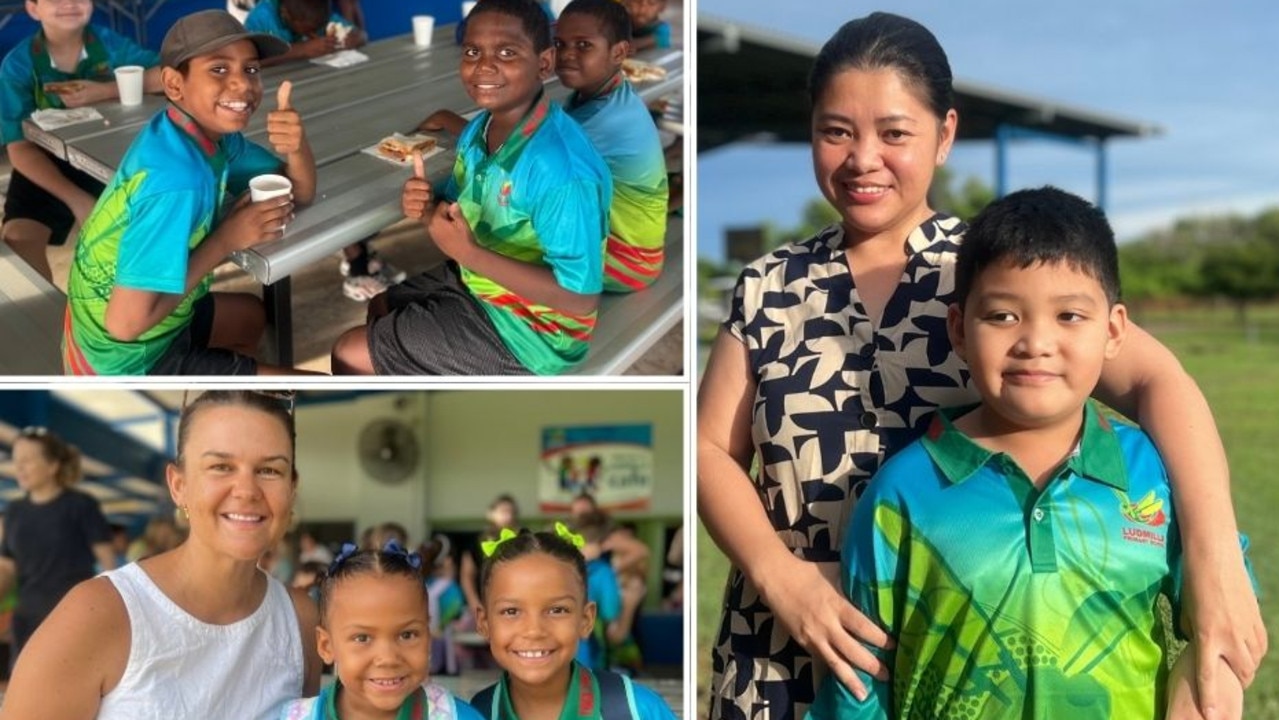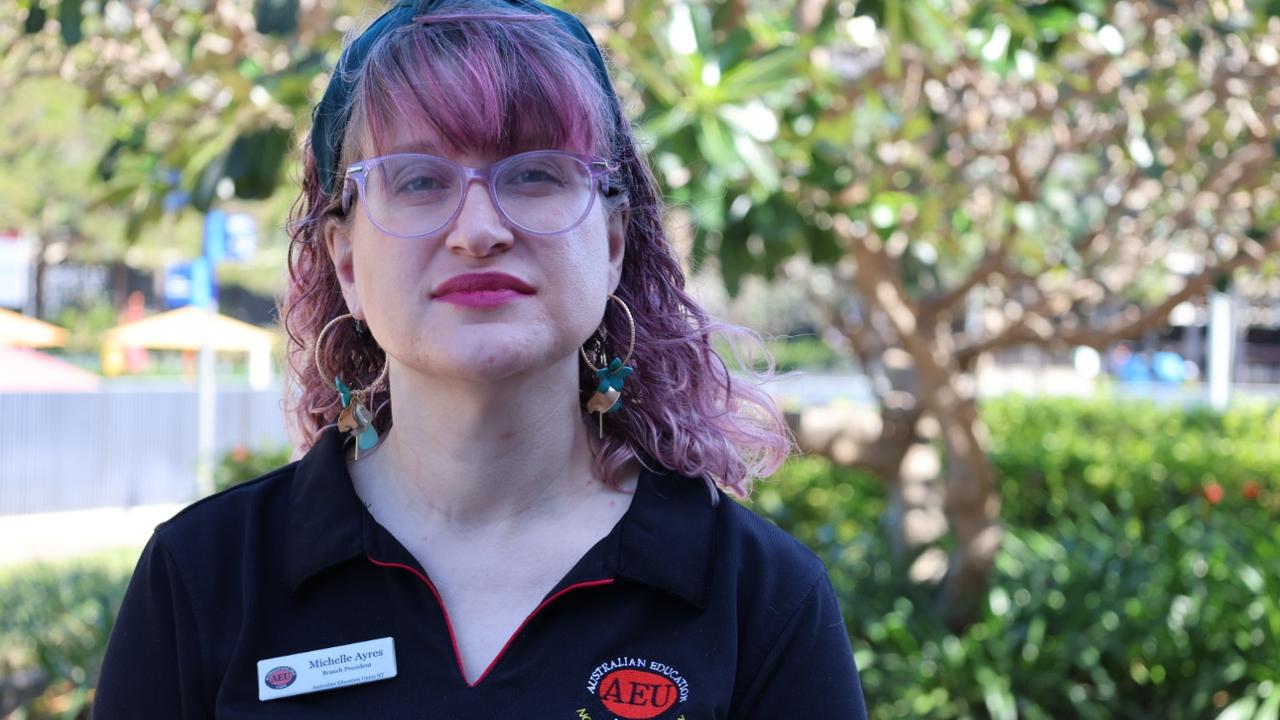Yirrkala School celebrates 50th anniversary of bilingual education
One Top End school’s defiance in the face of anti-language policy has been celebrated as it commemorates its 50th year of delivering a bilingual education. Watch the video.
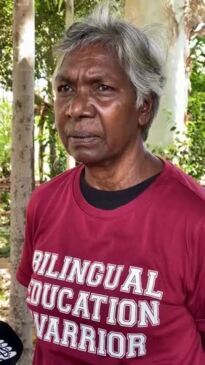
Education
Don't miss out on the headlines from Education. Followed categories will be added to My News.
“I honestly believe that our children can do anything.”
The 1996 quote from Mr W Wunungmurra set the tone for Yirrkala School’s 50th anniversary of bilingual education on Thursday.
The school – like eight other bilingual education centres across the Territory – fought hard to keep Aboriginal languages embedded in its roots since the 70s.
But students and community members alike gathered to celebrate the school’s triumph with music, dancing, food, and a stroll down memory lane.
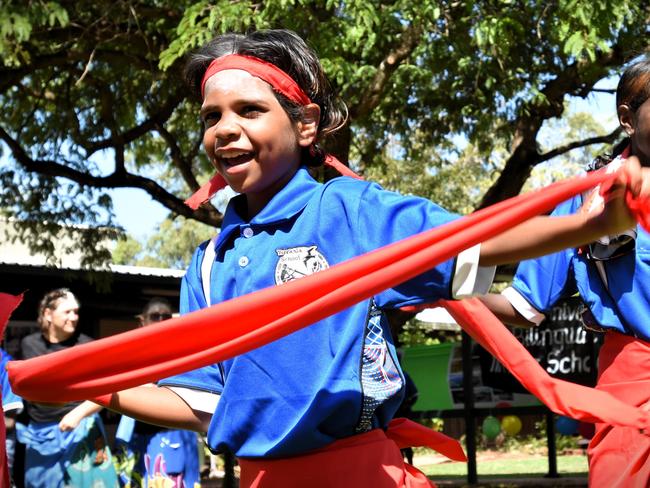
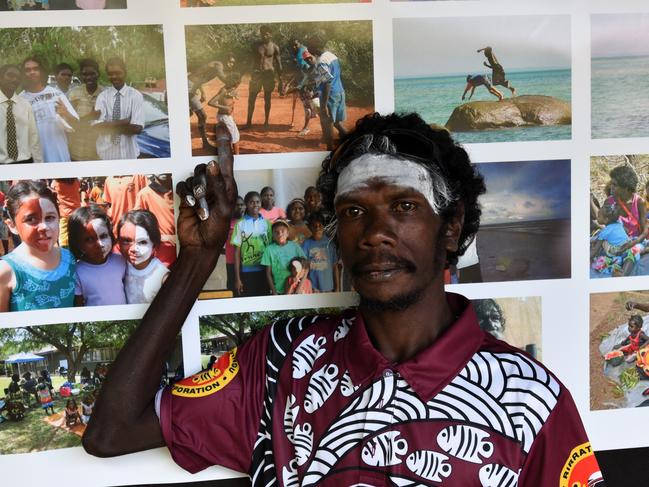
Senior Australian of the Year 2024 and Yirrkala School council chairperson – and retired teacher – Yalmay Yunupingu said the day’s celebrations were about recognising the school’s strength after its bilingual program faced an uphill battle against government policy in 2008.
Then-Education Minister Marion Scrymgour determined English would be the language of instruction in the first four hours of the school day – but Ms Yunupingu said Yirrkala School rejected the policy and continued to operate using “the B-word”.
The school’s defiance paid off, and it is now considered a shining example of ‘both ways’ learning and remote education outcomes.
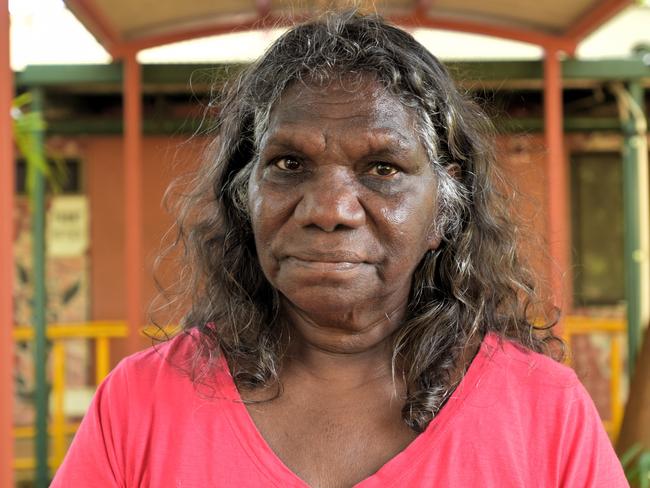
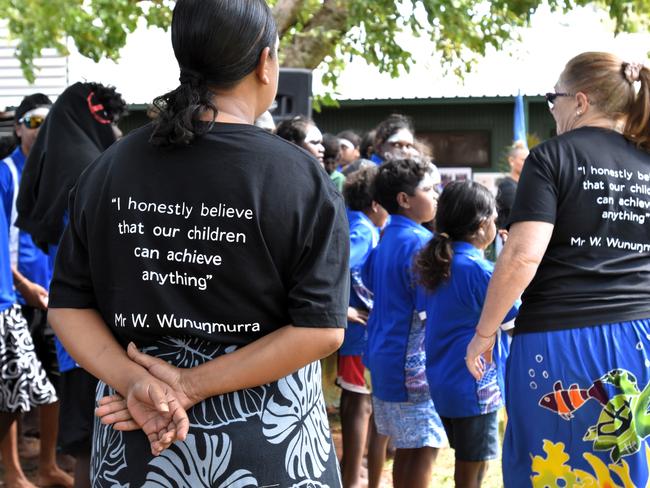
Ms Yunupingu said the community coined the phrase “don’t cut my tongue” while bilingual education was under threat in the Territory.
The phrase is now displayed on posters around the school as a reminder of the community’s defiance.
“We don’t want the language to lose, because language is very important,” she said.
“It talks about our identity, who we are, where we come from.
“We can’t take that away, it lives in us forever.”
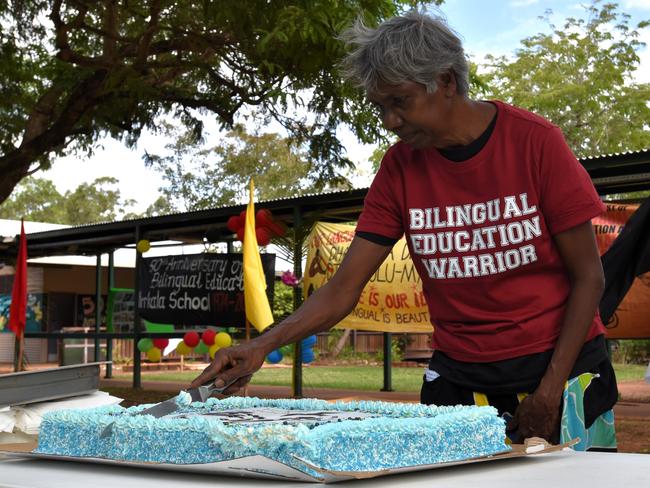
Co-principal Merrkiyawuy Ganambarr said about 14 languages were now taught at the school.
“The Elders were very traditional … in their own clan languages,” Ms Ganambarr said.
“Having all these clans come together in the early 50s, 60s, clans coming together literally changed a language or created a new language by the mixture of all these clans coming together.”
Ms Ganambarr said the Gumatj language was chosen to be taught alongside English at Yirrkala School at the time, but kids now learn Dhuwaya Yolngu Matha.
“Now, we’re starting to think back to the clan languages, so who knows what might happen in the next couple of years?”
ALL THE PHOTOS
More Coverage
